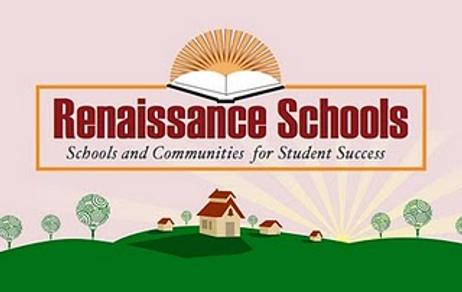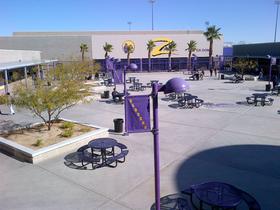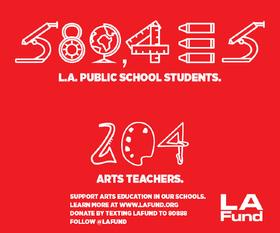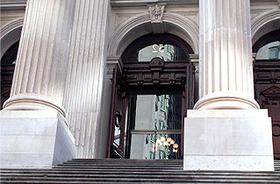The Renaissance School Initiative is continuing its efforts to transform some of the lowest-performing schools in Philadelphia by giving them over to charter organizations. This year, six more struggling schools are slated for charter school takeovers and the district is currently evaluating the applicants for the job. While this new process has been hailed by some as an effective way to raise the quality of education in one of the largest school districts in the country, others worry that there is simply not enough evidence to support the idea of allowing more public schools to be absorbed by charters this year.
About the Renaissance School Initiative
The Renaissance School Initiative was established by the School District of Philadelphia on January 27, 2010, according to the district’s website. The goal of the initiative is to bring dramatic student improvement through the transformation of some of the city’s lowest-performing schools. To accomplish this goal, the district solicits help from individuals and organizations with a positive track record of turning around struggling schools in Philadelphia. Schools are given over to public charters, so the necessary changes can take place internally to bring about the much-needed changes to student achievement.
The district has cited three important components required to meet their goals for all Philadelphia schools, which include:
- Identifying the lowest-performing schools that will require a transformative change to improve
- Identifying the entities (individuals or organizations) that are best equipped to make those transformations
- Empowering the local school community to become an essential factor in the transformation of the school
Schools are identified for charter takeover by academic performance and school climate. The district also looks at the percentage of neighborhood enrollment in a school. To date, 17 schools within the School District of Philadelphia have been turned over to charters, according to Philly.com. School officials tell the publication they have been pleased with the progress these schools have made thus far. Specific improvements that have been documented at these schools include improvements in academic performance, higher attendance, and a decrease in violence overall. Neighborhood enrollment is also up at these schools.
This video offers an overview of the Renaissance Schools Initiative.
Success of Renaissance
According to a recent report at The Notebook, most of the charter operators chosen by the school district have overseen significant improvements at their schools. The one exception is Universal Companies, which is the second-largest operator of Philadelphia charter schools to date. Schools under the oversight of this operator are lagging behind other schools in the district that has been a part of the Renaissance School Initiative. At least three of these schools are not on track to meet the targets defined in their charters.
Other charter operators within Philadelphia are on track to meet their charter goals, and some serve as shining examples of why the district continues to work within the Renaissance framework to transform low-performing schools. For example, The Notebook cites Young Scholars Frederick Douglass Elementary School in North Philadelphia. When this school was first taken over by its charter operator, more than half the students in the neighborhood were attending different schools.
Scholar Academies took over Frederick Douglass during the 2010-2011 school year. Today, more than 90 percent of the students in the neighborhood are now attending school. The school’s test scores have also gone up in reading and math. Scholar Academies explains to The Notebook that a big part of their job in turning around the school was to build trust between school staff and neighborhood parents – a job that appears to have been successful, according to recent enrollment numbers.
Evidence Inconclusive, Consulting Group Asserts
Despite success stories like Frederick Douglass, an independent consulting group assigned to monitor the Renaissance schools says the evidence of improvement is far from conclusive. The Notebook also reports that this group released a report last year that states early results from the newly-run charter schools are encouraging, but many questions have yet to be answered about the factors that are definitely contributing to the success of these schools.
While the K-8 schools in the Renaissance program showed favorable gains, the results from the high schools in the program were less encouraging. This led the consulting team to determine it is too early to identify the specific factors that led to the success of some schools. The report also warns that it is too early to tell if the gains made during the first year will be sustainable into the future.
This video looks at charter schools.
More Schools to be Chosen
As research on the success of the Renaissance initiative continues, the district is gearing up for another wave of charter takeovers this year. The timeline for identifying these schools and matching them with the appropriate charter organizations is tight. The district plans to announce the schools slated for charter takeover on February 11.
At that time, they will also begin holding community meetings as they wait for applications from potential charter operators. Applications will be considered by the superintendent and recommendations made. The final list will then be voted on by the School Reform Commission. The selection of operators will be announced by May, at which time the transition phase will commence. Schools will open under their new charters by the Fall of 2013.
The superintendent of the School District of Philadelphia, William Hite, states that he plans to turn three low-performing schools over to charter operators next year. Another three schools will be slated for management by the district, as “Promise Academies.”
Questions? Contact us on Facebook. @publicschoolreview















